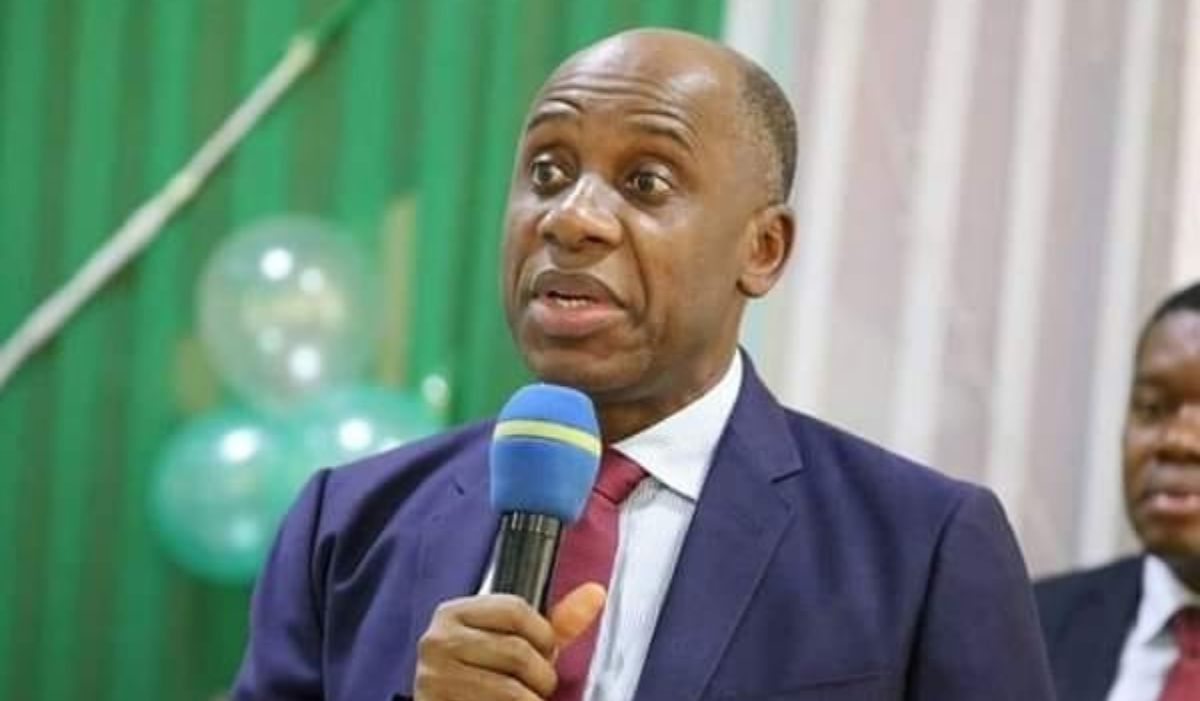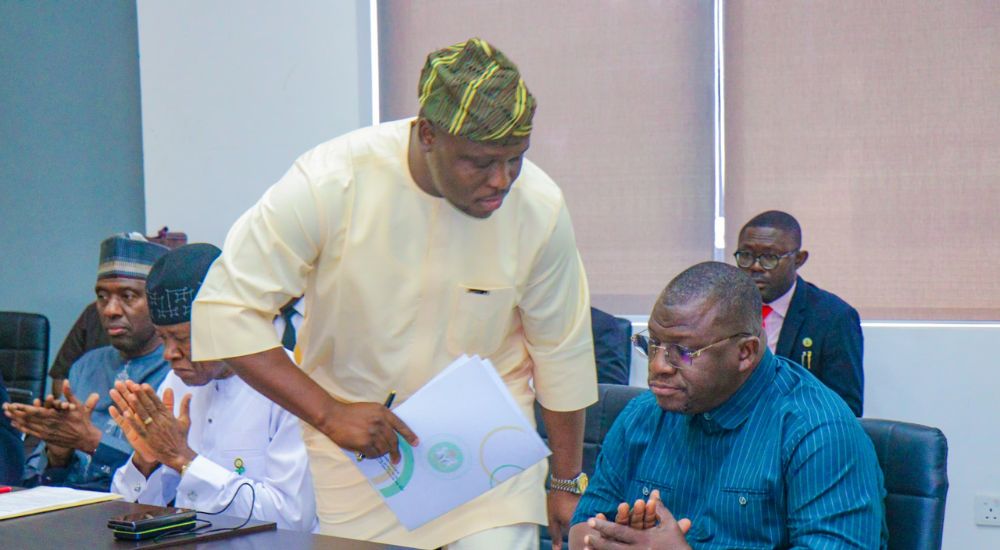Amaechi Slams Nigeria’s Leaders at 60th Birthday, Decries ‘Weaponisation of Poverty’

At his 60th birthday celebration in Abuja on Saturday, former Transportation Minister Rotimi Amaechi launched a scathing attack on Nigeria’s political establishment, alleging systematic neglect of the country’s most vulnerable citizens.
The All Progressives Congress (APC) founding member used the event, centred around the theme “Weaponisation of Poverty as a Means of Underdevelopment: A Case Study of Nigeria”—to present his uncompromising views on the nation’s governance challenges.
Amaechi’s central argument focused on what he described as a calculated indifference by those in power toward Nigeria’s impoverished masses.
“Let me tell you, no Nigerian leader cares for the poor, because they know that Nigerians can do nothing to them once they are in power,” Amaechi said.
The former Rivers State governor painted a picture of a political system where accountability is absent, allowing officials to govern without meaningful consequences for their actions.
His criticism extended to the government’s response to civil unrest, particularly referencing recent fuel price adjustments that followed nationwide demonstrations.
“When Nigerians protested, the President announced an increase in the price of fuel because they know you cannot do anything,” he added.
According to Amaechi, economic hardship serves as a deliberate mechanism for population control rather than as an unfortunate byproduct of policy failures. He suggested that widespread hunger creates a climate where citizens are easier to manipulate during election cycles.
“We are all hungry. All of us are. If you are not hungry, I am,” he said.
“It is when elections come that they will tell you. Now you have a Muslim-Muslim ticket. Let the Muslim-Muslim market come out now. It’s time.”
The former minister also revealed his personal stance during the 2023 presidential race, disclosing his refusal to support President Tinubu despite their shared party affiliation.
“I met President Tinubu in Yola and I told him I would not work for you and I would not vote for you,” Amaechi revealed.
“I told him just like that. People have been saying I do not work for the All Progressives Congress (APC) or the Peoples Democratic Party (PDP). That is because I was convinced that there was an issue of capacity.”
Amaechi expressed his belief that opposition groups possess the capability to effect governmental change, provided they prioritise collective national welfare over individual political ambitions.
“For us in the opposition, if we want to remove the man in power, we can remove him from power,” he declared.
“We want to submit to the opposition—if the opposition can lead us out of this problem. And for the opposition to lead us out, we must agree to submit ourselves to the nation’s interests first, before our own interests.”
His critique extended to economic policy implementation, suggesting that while certain governmental initiatives might have merit, their execution often prioritises personal gain over public benefit.
“If I were president, yes, some of the policies they are pursuing, I would pursue them. However, they are more interested in the gains than in the benefits to Nigerians,” he stated.
“Take, for instance, we were paying ₦4-5 trillion on fuel subsidy. Now that the subsidy is gone, where is the money? Imagine if they had invested it in the economy—would the average Nigerian not have felt the impact?”
Regarding Nigeria’s escalating security crisis, Amaechi drew direct connections between rising violence and deteriorating economic conditions across the country.
“Insecurity is 99 percent poverty. Insecurity is increasing in Nigeria because there is hunger,” he explained.
“When I was the governor of Rivers State and there was an increase in insecurity, I knew there was no money in the system. So I directed my commissioner…”





